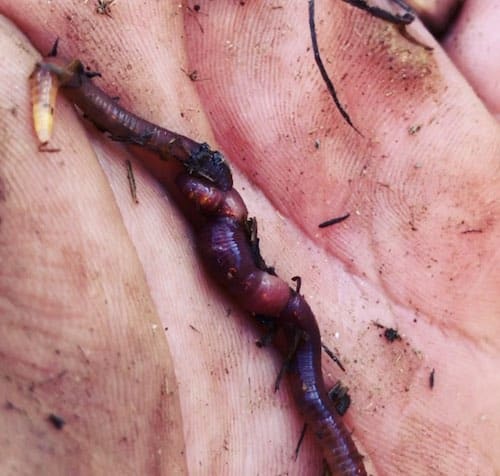Discover Lake Hickory Bait: Fresh Supplies for Every Fishing Adventure
Discover Lake Hickory Bait: Fresh Supplies for Every Fishing Adventure
Blog Article
The Extraordinary Globe of Red Wigglers: Increase Your Soil Fertility Today
These tiny yet efficient organisms change natural waste into important worm spreadings, significantly boosting dirt health and advertising sustainable practices. As we explore the advantages of vermicomposting and the sensible steps to create an effective worm container, the potential impact of these worms on your horticulture success becomes increasingly noticeable.
Recognizing Red Wigglers
Red wigglers, scientifically called Eisenia fetida, are a species of earthworm that play an important role in enhancing dirt fertility. These worms thrive in organic-rich environments, such as compost heap and decomposing plant material, where they consume natural waste and excrete nutrient-dense spreadings. Their special anatomy, including a segmented body and a clitellum, permits them to recreate rapidly and successfully procedure huge amounts of raw material.

The ecological value of red wigglers expands past plain waste handling; they add to the dirt food internet, cultivating a varied neighborhood of microbes that additionally enhance soil health. Comprehending the biology and behavior of red wigglers is essential for utilizing their full potential in sustainable agriculture and horticulture techniques.
Advantages of Vermicomposting
(Red Wiggler Express)Utilizing the power of red wigglers via vermicomposting offers many advantages that substantially improve soil health and wellness and fertility. One of the primary advantages is the manufacturing of nutrient-rich worm spreadings, which are a superb all-natural fertilizer. Red Wiggler Express. These castings consist of crucial nutrients like nitrogen, phosphorus, and potassium, promoting durable plant development and enhancing plant returns
The existence of worm spreadings improves soil texture, enabling for much better water retention and drainage. Red wigglers help damage down natural matter, speeding up decomposition and recycling nutrients back into the soil.
Vermicomposting likewise promotes microbial task, which is crucial for a healthy and balanced dirt environment. Beneficial microbes grow in the presence of worm spreadings, assisting in the failure of natural materials and improving nutrient schedule to plants.
Lastly, vermicomposting functions as a reliable waste administration remedy, decreasing garbage dump waste by reusing kitchen scraps and other natural materials. This not just adds to environmental sustainability but also promotes a round economic situation within horticulture and farming.
Just How to Set Up a Worm Bin
Setting up a worm container is a straightforward procedure that can significantly boost your composting efforts. Begin by selecting an ideal container, which can range from a readily available worm bin to a basic plastic or wood box (Red Wiggler Express). Make certain the container has appropriate air flow; tiny openings in the lid and sides will promote air flow
Next, develop a bedding layer to offer a comfy environment for the red wigglers. This can be made from shredded newspaper, cardboard, or coconut coir, moistened to a moist, sponge-like consistency. Fill the container to about one-third complete with this bed linen material.
When the bed linens is prepared, it's time to present the worms. Red wigglers grow in natural waste, so location them carefully onto the bed linens. Cover the worms with a light layer of added bed linen to assist them adapt.
Feeding Your Red Wigglers
Offering the appropriate food for your red wigglers is essential for their health and wellness and the performance of your composting system. Red wigglers flourish on a varied diet, mostly containing natural materials such as fruit and veggie scraps, coffee grounds, and shredded paper. These materials not just supply necessary nutrients however additionally add to the microbial task in the worm bin, which is critical for the worms' food digestion.
It is essential to stay clear of certain foods, such as milk products, oils, and meats, as these can attract insects and produce unpleasant smells. Additionally, citrus peels and extremely zesty foods must be restricted as a result of their potential to harm the worms. A well balanced technique to feeding entails monitoring the quantity of food introduced to the container, making sure that it is taken in within an affordable timespan to avoid excess waste buildup.
To advertise optimal digestion, it is useful to cut or shred larger useful reference food products prior to including them to the bin. This technique boosts the surface area for microbial activity, promoting quicker disintegration and boosting the general effectiveness of your composting system. Regularly observing the worms' feeding habits will help you change their diet as required.
Utilizing Worm Spreadings in Your Garden

(Red Wiggler Express)Incorporating worm spreadings right into your garden can be accomplished by blending them right into the dirt or utilizing them as a top dressing. The slow-release nature of these castings makes sure that nutrients are offered to plants over a prolonged duration, minimizing the requirement for synthetic plant foods. Additionally, worm castings consist of advantageous microbes that promote healthy dirt environments, improving the overall strength of your yard.
To maximize the benefits, goal to use roughly one component worm castings to 3 parts dirt in your planting beds. Routine applications can cause enhanced crop yields and healthier plants, making worm castings a vital resource for both newbie and knowledgeable garden enthusiasts alike. By using this natural amendment, you can grow a successful yard while adding to lasting gardening methods.
Conclusion
In conclusion, red wigglers exemplify the vital role of vermicomposting in boosting soil fertility. Their capacity to convert natural waste right into nutrient-rich castings dramatically enriches soil structure and sustains microbial diversity.
Report this page